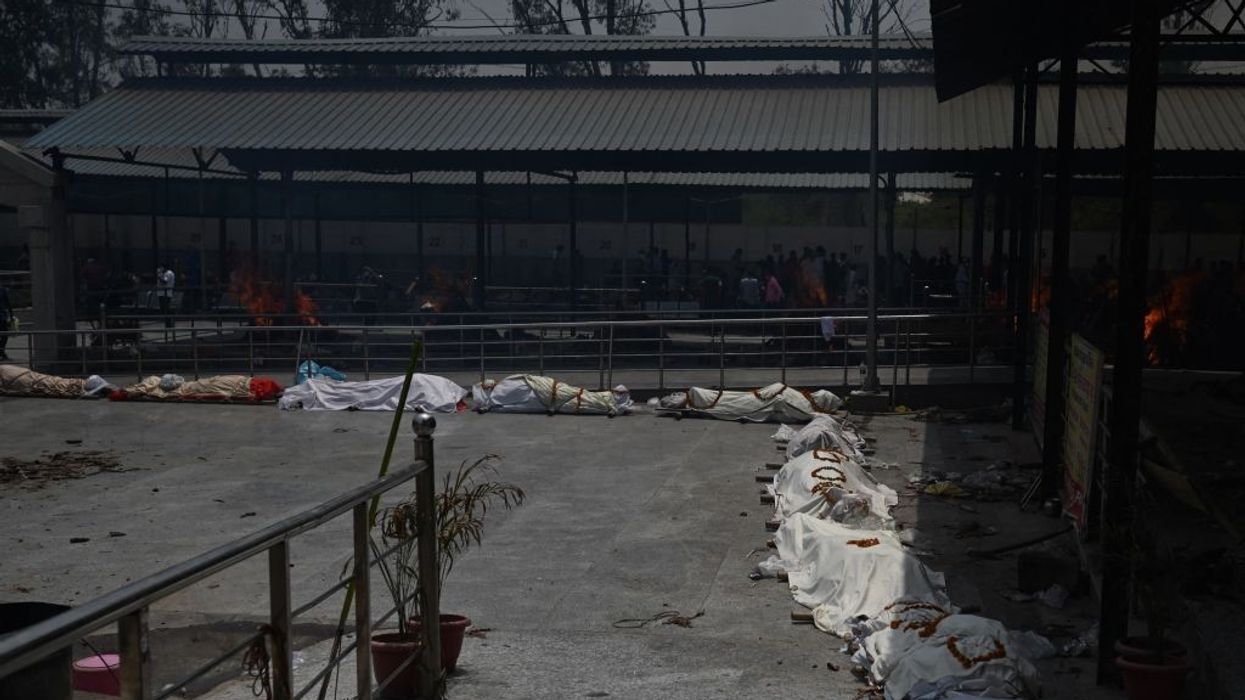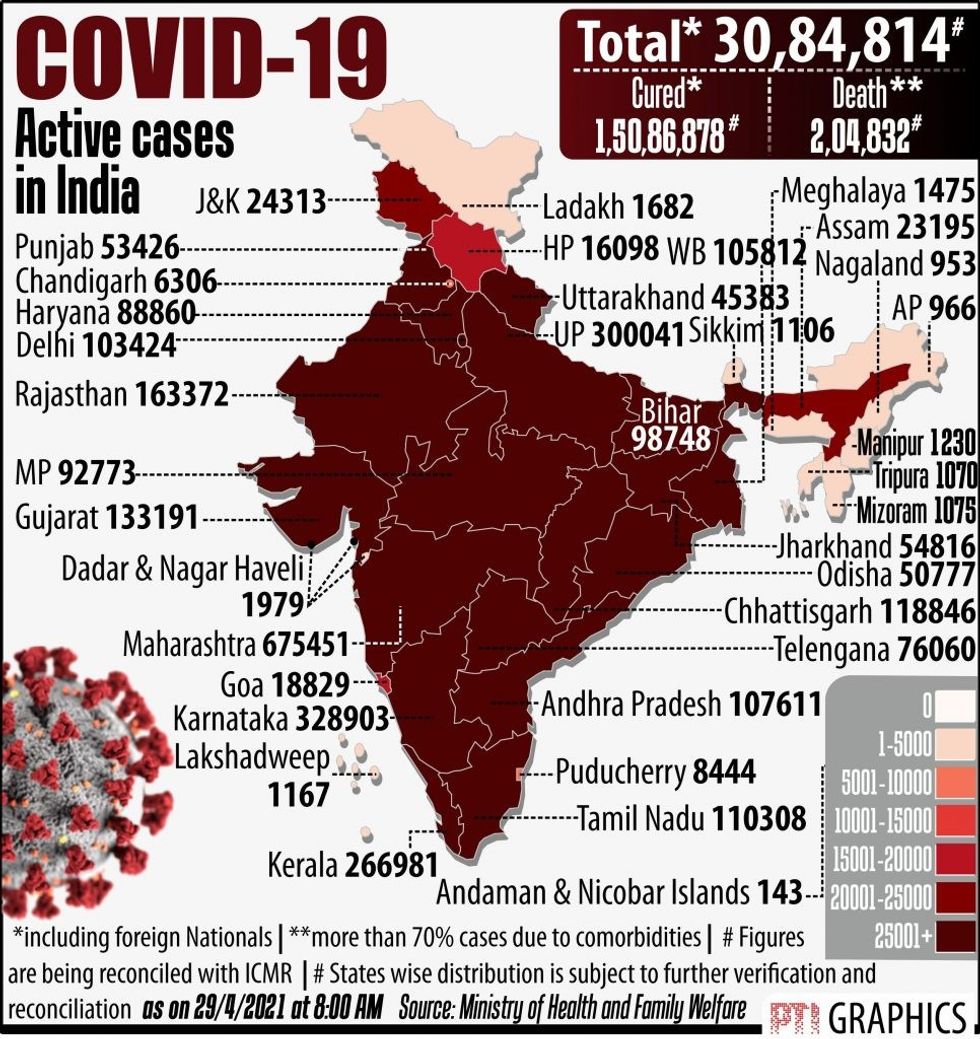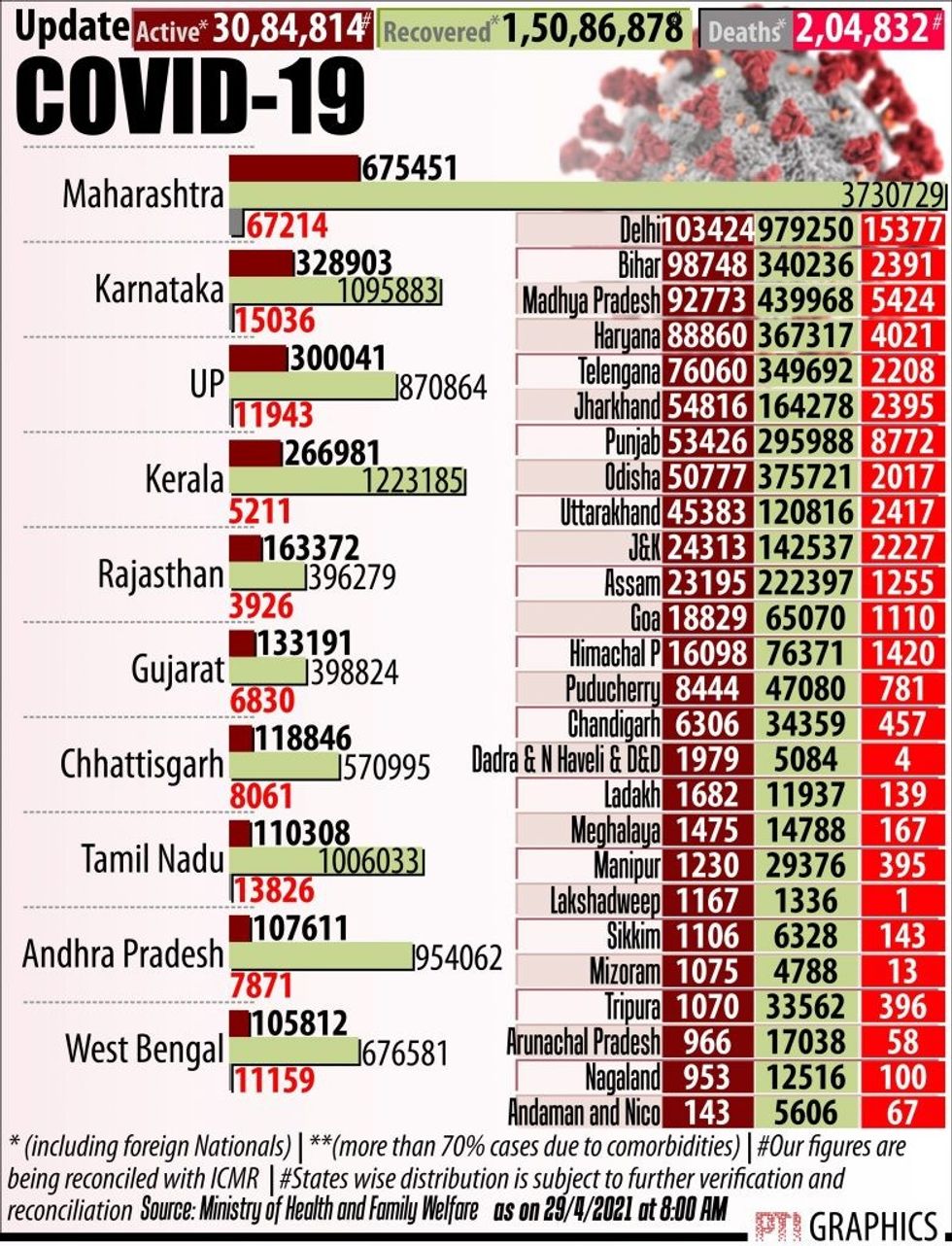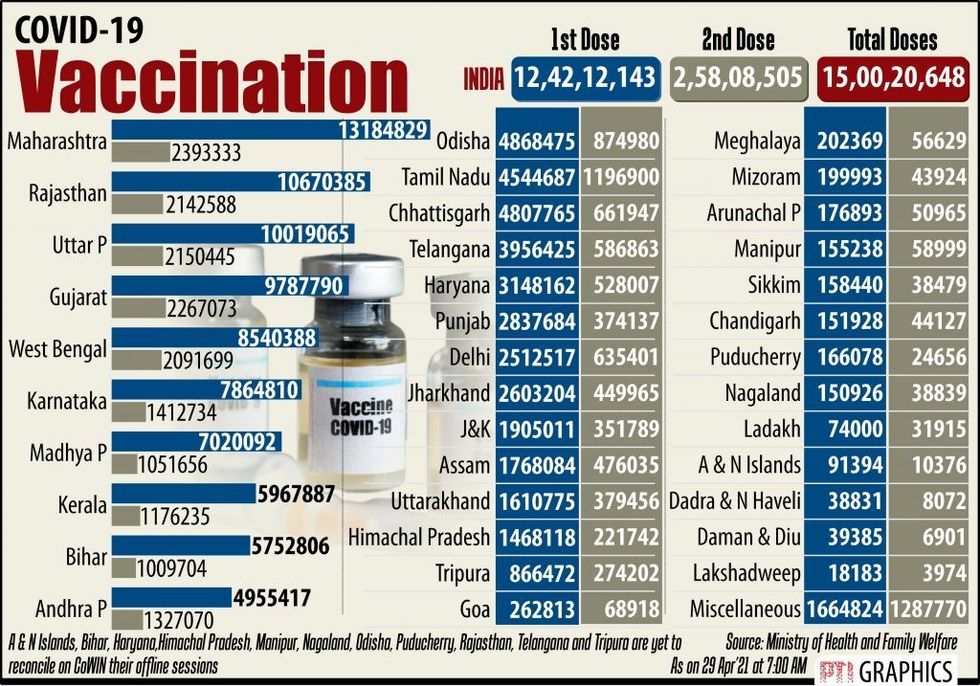INDIA's total Covid-19 cases passed 18 million on Thursday (29) after another world record number of daily infections, as gravediggers worked around the clock to bury victims and hundreds more were cremated in makeshift pyres in parks and parking lots.
India reported 379,257 new infections and 3,645 new deaths on Thursday, health ministry data show for its highest number of deaths in a single day since the start of the pandemic.
The world's second most populous nation is in deep crisis, with its hospitals and morgues overwhelmed as healthcare professionals struggle to cope with streams of patients.
Mumbai gravedigger Sayyed Munir Kamruddin said he and his colleagues were working non-stop to bury victims.
Each day, thousands of Indians search frantically for hospital beds and life-saving oxygen for sick relatives, using social media apps and personal contacts. Hospital beds that become available, especially in intensive care units, are snapped up in minutes.
"The ferocity of the second wave took everyone by surprise," K. VijayRaghavan, principal scientific adviser to the government, was quoted as saying in the Indian Express newspaper.
India's military has begun moving key supplies, such as oxygen canisters, across the nation and will open its healthcare facilities to civilians.
Hotels and railway coaches have been converted into critical care facilities to make up for the shortage of hospital beds.
India's best hope to curb the second deadly wave was to vaccinate its vast population, said experts, and on Wednesday (28) it opened registration for all above the age of 18 to receive shots from Saturday (1).
But although it is the world's biggest producer of vaccines, India does not have the stocks for the estimated 800 million now eligible.
Many who tried to sign up for vaccination said they failed, complaining on social media of being unable to get a slot or even to simply get on the website, as it repeatedly crashed.
"Statistics indicate that far from crashing or performing slowly, the system is performing without any glitches," the government said on Wednesday.
More than 8 million people had registered, it said, but it was not immediately clear how many had got slots.
Number of deaths may be higher
Only about 9 per cent of India's population of about 1.4 billion has received a dose since the campaign began in January, first with health workers and then the elderly.
While the second wave of infections overwhelmed the health system, the official death rate is below that of Brazil and the US, however.
India has reported 147.2 deaths per million of population, the Reuters global Covid-19 tracker shows, a much lower share than Brazil and the US, which reported corresponding figures of 1,800 and 1,700 respectively.
However, medical experts believe India's true Covid-19 numbers may be five to 10 times greater than the official tally.
At Delhi's Holy Family Hospital, patients continued to arrive in ambulances and private vehicles, some gasping for air as their oxygen cylinders ran out. In the intensive care unit (ICU), patients lay on trolleys between beds.
"Someone that should be in the ICU is being treated in the wards," Dr Sumit Ray, the head of the unit, told Reuters.
The US state department issued a travel advisory on Wednesday against travel to India because of the pandemic and advised its citizens to leave the country.
Prime minister Narendra Modi has been criticised for allowing massive political rallies and religious festivals which have been super spreader events in recent weeks.
India expects close to 550 oxygen generating plants to come in from all over the world as medical aid starts pouring in, foreign secretary Harsh Vardhan Shringla said on Thursday.
Two airplanes from Russia, carrying 20 oxygen concentrators, 75 ventilators, 150 bedside monitors, and 22 metric tonnes of medicine, have arrived in the capital.
The US is sending supplies worth more than $100 million, including 1,000 oxygen cylinders, 15 million N95 masks and 1 million rapid diagnostic tests, the White House said in a statement.
The supplies will begin arriving on Thursday, it added.
The US also has redirected its own order of AstraZeneca manufacturing supplies to India, to allow it to make more than 20 million vaccine doses, the White House said.
India will receive a first batch of Russia's Sputnik V vaccine on May 1. Russia's RDIF sovereign wealth fund, which is marketing Sputnik V globally, has signed deals with five Indian manufacturers for more than 850 million vaccine doses a year.
Neighbouring Bangladesh said it would send about 10,000 vials of injectable anti-viral and oral anti-viral medicines, 30,000 PPE kits, and several thousand mineral and vitamin tablets.
Germany will send 120 ventilators to India on Saturday, followed by a mobile oxygen production facility next week, its defence ministry said.








